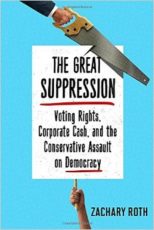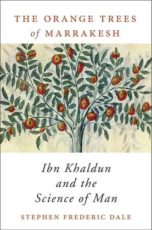With Zachary Roth, national reporter with MSNBC author of the book “The Great Suppression: Voting Rights, Corporate Cash and the Assault on Democracy.”
About the book:
 In The Great Suppression, Roth unearths the deep historical roots of this anti-egalitarian worldview, and introduces us to its modern-day proponents: The GOP officials pushing to make it harder to cast a ballot; the lawyers looking to scrap all limits on money in politics; the libertarian scholars reclaiming judicial activism to roll back the New Deal; and the corporate lobbyists working to ban local action on everything from the minimum wage to the environment. And he travels from Rust Belt cities to southern towns to show us how these efforts are hurting the most vulnerable Americans and preventing progress on pressing issues.
In The Great Suppression, Roth unearths the deep historical roots of this anti-egalitarian worldview, and introduces us to its modern-day proponents: The GOP officials pushing to make it harder to cast a ballot; the lawyers looking to scrap all limits on money in politics; the libertarian scholars reclaiming judicial activism to roll back the New Deal; and the corporate lobbyists working to ban local action on everything from the minimum wage to the environment. And he travels from Rust Belt cities to southern towns to show us how these efforts are hurting the most vulnerable Americans and preventing progress on pressing issues.
The Great Suppression is an urgent wake-up call about a threat to our most cherished values, and a rousing argument for why we need democracy now more than ever.
And
Stephen Dale, Professor Emeritus of History and Distinguished University Scholar at The Ohio State University. Author of the book “The Orange Trees of Marrakesh: Ibn Khaldun and the Science of Man.”
About the book:

In his masterwork Muqaddimah, the Arab Muslim Ibn Khaldun (1332–1406), a Tunisian descendant of Andalusian scholars and officials in Seville, developed a method of evaluating historical evidence that allowed him to identify the underlying causes of events. His methodology was derived from Aristotelian notions of nature and causation, and he applied it to create a dialectical model that explained the cyclical rise and fall of North African dynasties. The Muqaddimah represents the world’s first example of structural history and historical sociology. Four centuries before the European Enlightenment, this work anticipated modern historiography and social science.
In Stephen F. Dale’s The Orange Trees of Marrakesh, Ibn Khaldun emerges as a cultured urban intellectual and professional religious judge who demanded his fellow Muslim historians abandon their worthless tradition of narrative historiography and instead base their works on a philosophically informed understanding of social organizations. His strikingly modern approach to historical research established him as the premodern world’s preeminent historical scholar. It also demonstrated his membership in an intellectual lineage that begins with Plato, Aristotle, and Galen; continues with the Greco-Muslim philosophers al-Farabi, Avicenna, and Averroes; and is renewed with Montesquieu, Hume, Adam Smith, and Durkheim.


Who draws the districts? Who has that authority? Shouldn’t it be an independent assembly?